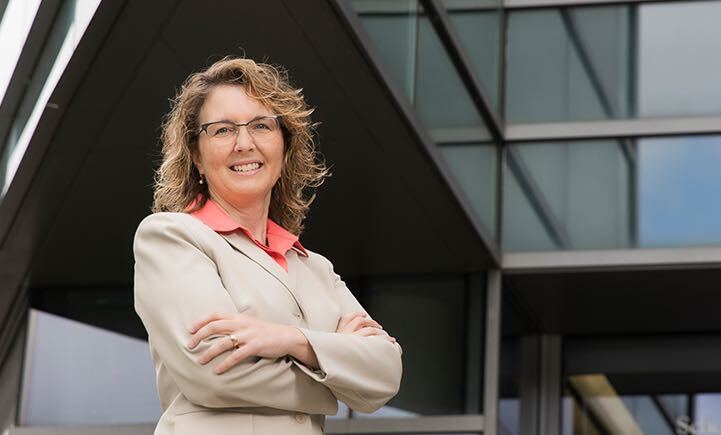Shelley Dionne, MBA ‘94, management Ph.D. ‘98, is an associate dean and professor of leadership, area chair leadership and organizational science at Binghamton University.
1. What was one of your most valuable experiences that you gained from your time at BU?
“The [School of Management]’s Ph.D. program taught me how to think critically and scientifically and to use a rigorous, data-driven problem-solving approach. Mostly, I was just amazed at the world-class research happening all around campus. And, as doctoral students, we were encouraged to break silos — attend doctoral seminars and research presentations in engineering, education, political science and psychology, to name a few. But I will say, my most valuable experience has been network building with my mentors/colleagues that have been here since my time as a student: [distinguished professor of management] Fran Yammarino, [associate professor emeritus] Don Spangler and [associate professor emeritus] Tom Kelly, and coming to work for Dean Upinder Dhillon.”
2. How do you feel that BU prepared you for your current position as an employee of the University?
“The MBA was a terrific degree for me because I came from a dietetics/nutrition background, and while I had clinical training, I really needed managerial training. The MBA provided a strong background in understanding what makes organizations successful — from motivating and leading others, to setting business strategy and marketing priorities, to understanding financial and organizational operations. It’s an incredibly useful degree both in my current position and in my volunteer roles in outside organizations as well.”
3. How has BU changed since your time here as a student? Is there anything that you wish would come back or wish current students could experience?
“The movement to Division I athletics was really exciting — I hope following [COVID-19] that students and alumni come and experience all the sporting events. These events are really student and family-friendly, and it’s been so much fun for my family, friends and even alumni that return to campus. We have them bring their families and head to the games — women’s and men’s games, they are all terrific. What I wish students could experience? As Ph.D. students, we read thousands of pages of journal articles and book chapters each semester, all of which needed to be copied from the library. We had to find the journals in the stacks, no such thing as PDFs on the internet, and then copy every page, including all the reference pages, on one of the pay copiers located in the library. My fellow doctoral students and I spent the first four weeks of each semester spending every free moment in the library copying articles. Now students can find anything from their phones! They don’t know how easy they have it.”
4. Why did you choose to return to BU after being a student here, and what is it like to now be an employee?
“Recently, I arrived home pretty late one night from work, and I remember telling my husband that as tired as I was, I still had the best job in the world. I wanted to stay at [BU] because it was a chance to work for one of the best business schools in the country — who can pass that up? I am so proud to be part of an amazing faculty that works every day to challenge students and produce innovative research, and I also admire the staff in the school that keeps everything running seamlessly. And, honestly, all across this campus and at every level, I have been able to work with the coolest women on the planet — I don’t think there’s a more impressive group of women anywhere. I am so inspired by them every day.”
5. What is one thing that you think current BU students and future BU alumni should know?
“I think current students and future alumni should know there is no doubt they will experience amazing intellectual growth in the classroom. However, the opportunities for social growth are equally important to their well-being and development, so I encourage students to engage with clubs and activities, take leadership roles whenever possible, attend lectures and listen respectfully to other viewpoints while honing their own, and purposefully build relationships and friendships with students from other cultures. So much of what we learn by building strong networks now will accelerate our professional opportunities for the rest of our lives.”



